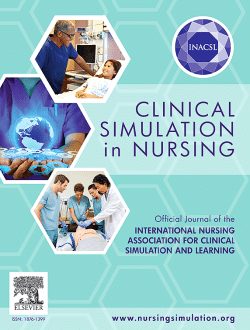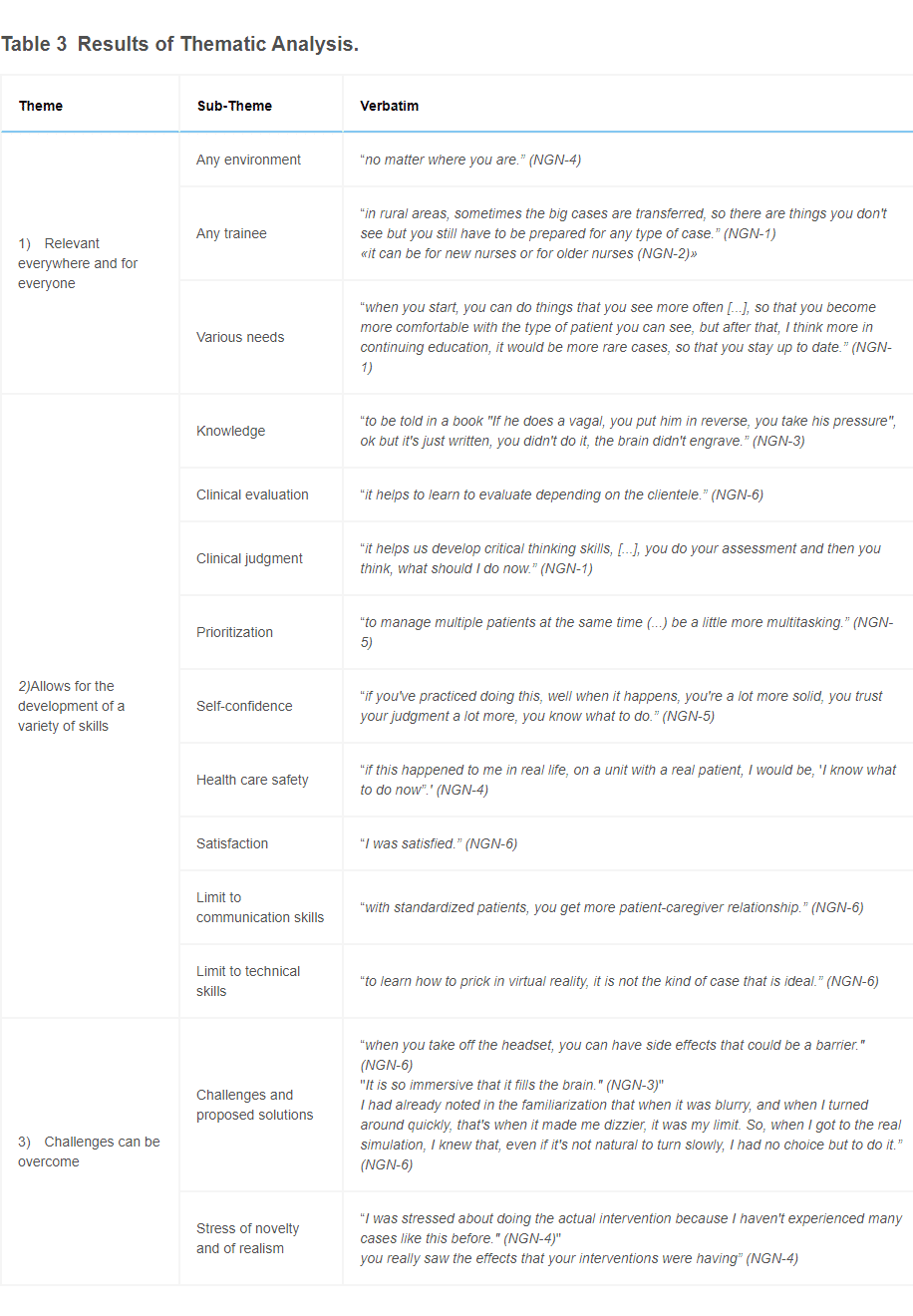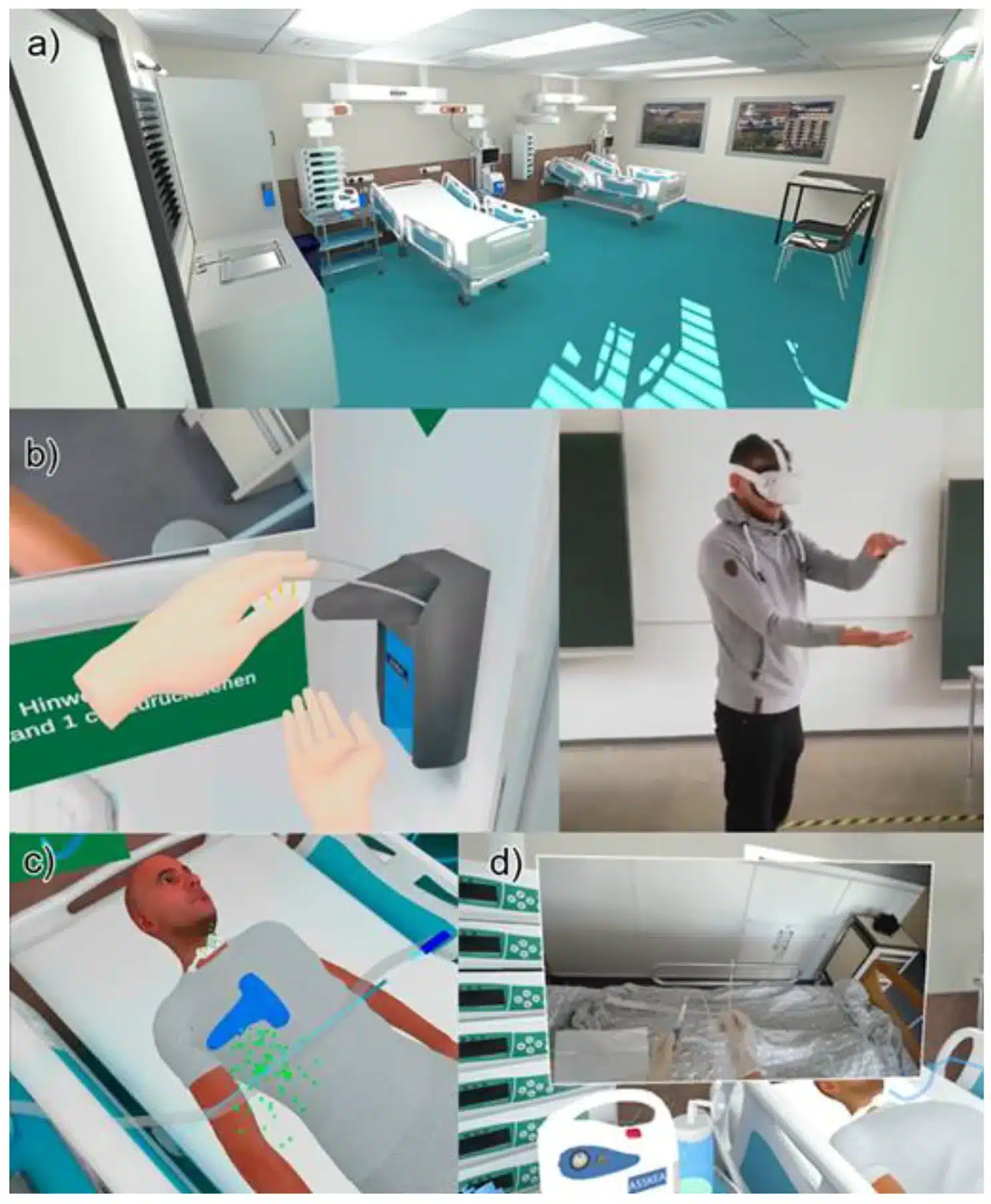Here at i3 Simulations, we’re always up-to-date with new research in simulation, education, and Extended Reality (XR) technology. We’ve decided to share this knowledge through a monthly blog series, where we’ll be sharing the latest evidence on how XR simulations are transforming medical training.
This month we’ll be looking at ‘challenging’ cases faced by nursing students, and focus areas of clinical skills training to meet those challenges.

The Use of Simulated Participant and Virtual Reality Simulation to Enhance Nursing Students’ Communication Skills in “End of Life Care”
Hall, K. et al. (2024) – Clinical Simulation in Nursing
A study of 219 nursing students found that combining VR and simulated patient role-playing significantly improved their skills and confidence in handling challenging end-of-life care conversations. The realistic, emotionally intense scenarios allowed students to practice these difficult interactions in a safe environment.
Despite the intensity, students were highly satisfied with the experience and developed essential communication skills. The study highlights the promise of this innovative approach for preparing nursing students to navigate demanding, sensitive situations in clinical practice.
“The Patient Is Awake and We Need to Stay Calm”: Reconsidering Indirect Communication in the Face of Medical Error and Professionalism Lapses
Taylor, T. et al. (2024) – Advances in Simulation
This study investigated how healthcare teams communicate when a leader makes poor decisions in the presence of an awake patient. Using interprofessional simulation, researchers found that team members relied on indirect, subtle challenges to avoid undermining patient trust, and leaders surprisingly preferred this approach over direct confrontation.
The findings challenge assumptions about direct communication and highlight the importance of the patient’s presence in shaping team dynamics. Training leaders to recognize subtle challenges may promote effective communication while maintaining patient confidence. The study emphasizes exploring indirect communication strategies in healthcare contexts.


Exploring the Acceptability and Feasibility of an Immersive Virtual Reality Intervention for Newly Graduated Nurses Working in a Rural Area
Lemée, M.-H. et al. (2024) – Clinical Simulation in Nursing
This study investigated the acceptability and feasibility of using VR to develop the skills of newly graduated nurses in a rural hospital. Nurses found the intervention acceptable, with minimal cybersickness, and feasible due to its relevance, ability to develop various skills, and realism.
Despite limitations in practicing communication and technical skills, VR shows promise for enhancing knowledge, clinical judgment, and self-confidence among nurses in rural settings with limited educational resources. Factors such as familiarisation time, gradual case complexity, and dedicated training space should be considered when implementing VR in rural hospitals.
My Hands Are Running Away – Learning a Complex Nursing Skill via Virtual Reality Simulation
Plotzky, C. et al. (2023) – BMC Nursing
This study compared the effectiveness of two VR simulations and a video tutorial for teaching endotracheal suctioning to nursing students. All methods significantly improved knowledge, but the video group performed best in practical skill demonstration. The VR groups reported higher satisfaction, despite challenges with the technology.
VR shows promise for enhancing nursing education, particularly in increasing knowledge, satisfaction, and confidence before practical training. However, at present, VR may not be ideal for learning complex psychomotor skills due to limitations in haptic feedback and interaction fidelity.

What did the research find?
The research found that virtual reality (VR) training can be a valuable tool in nursing education:
- Several studies showed VR simulations improved nursing students’ knowledge, communication skills, and confidence in areas like end-of-life care and rural hospital settings.
- Participants appreciated the realistic, interactive learning experiences despite technological limitations.
Overall, well-designed VR can meaningfully enhance nursing education by providing engaging, realistic scenarios to practice various skills.
To find out more information about XR technology in simulation training, check out our evidence overview, trial the training software, or contact us for more information and any research questions!





